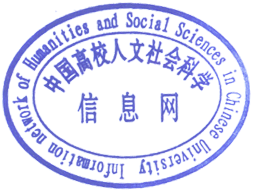关 键 词 :学校干预,心理发展,家庭社会经济地位,学校投入学科分类:
为了考察学校干预对中职生心理发展的影响,本研究采用整群随机抽样的方式,在广东、四川、贵州三个地区内部中职学校数的2%随机抽取学校,抽取了45所中等职业学校51949名中职生(男生占59.1%),年龄13-19岁(M±SD=16.85 ± 0.78)完成了第一次测试(T1),一年后有43588名中职生完成了第二测试(T2)。在45所学校中,抽取30所学校作为干预组(干预组学校每年资助经费30万,按照要求完成奖学金设置、相关实践活动等),19所学校作为对照组。按照对照组(n=16180)完全随机取50%样本(n=8090)与干预组(n=47993)进行倾向得分匹配(Propensity Score Matching,PSM),结合双重差分法(Difference-In-Difference Model,DID)构建了干预组(n=8090)与对照组(n=8090),并建立DID模型。调查内容包括背景变量(年龄、性别、户口、是否留守经历、是否单亲家庭)家庭SES(家庭年收入、父母受教育水平)、学业成就、成长思维和自我肯定等心理发展特征变量。结果显示:(1)学校干预能够显著提升中职生成长思维;(2)学校干预能够显著改善中职生心理发展特征,如对自我及心理健康、个体感知的学校心理环境、学习相关变量都有不同程度的影响;(3)学校干预能够显著提高中职生推理能力、注意能力以及阅读能力。这说明,学校投入是影响中职生心理适应的重要外部因素,增加学校投入能带来中职生心理适应水平的显著提高。
In order to investigate the effect of school intervention on the psychological development of secondary vocational school students, the current study used cluster random sampling method, selected 51,949 secondary vocational school students (59.1% boys) from 45 secondary vocational schools in Guangdong, Sichuan and Guizhou, aged 13-19 years (m ± SD = 16.85 ± 0.78) to complete the baseline test (T1), One year later, 43,588 secondary vocational school students completed the follow-up test (T2). In 45 schools, 30 schools were selected as the intervention group (the intervention group received an annual subsidy of ¥300,000 yuan to complete scholarship setting and related practical activities as required), and 19 schools were selected as the control group. According to the control group (n = 16,180), 50% of the samples (n = 8,090) and the intervention group (n = 47,993) were randomly selected for Propensity Score Matching (PSM). Combined with the Difference in Difference model (DID), the intervention group (n = 8,090) and the control group (n = 8,090) were constructed, and the did model was established. The content of the survey includes background variables (age, gender, household registration, left behind experience, single parent family), family SES (annual family income, parents' education level), academic achievement, growth mindset and self affirmation. The results show that: (1) school intervention can significantly improve the growth mindset of secondary vocational school students; (2) School intervention can significantly improve the psychological development characteristics of secondary vocational school students, such as self and mental health, individual perception of school psychological environment, learning related variables have different degrees of influence; (3) School intervention can significantly improve secondary vocational school students' reasoning ability, attention ability and reading ability. This showed that school investment was an important external factor affecting secondary vocational school students' psychological adaptation. Increasing school investment can significantly improve the level of secondary vocational school students' psychological adaptation.

